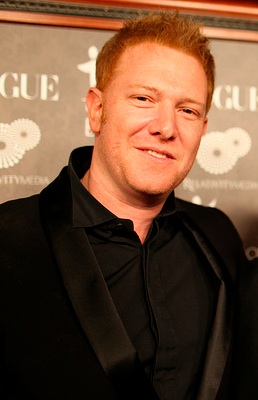 (Update: 9:36 a.m.)
(Update: 9:36 a.m.)
Relativity Media CEO Ryan Kavanaugh contacted TheWrap to say that he disagreed with public relations guru Michael Sitrick's characterization of the initial $7.7 million judgment against the movie producer. Kavanaugh had this to say:
"This is just Mike doing what he does best, spinning facts in an attempt to distract attention away from his defeat. Under our settlement agreement, and with my cooperation, Mike was able to recover over a million dollars under an insurance policy. He took the money, then reneged on our settlement agreement and made false accusations about me to the court. Both courts recognized that Mike's claims were false and the appellate court specifically chastised him for his substantial mischaracterizations of the record and the facts. Here once again, Sitrick is attempting to distort a simple fact: He lost."
Earlier:
Public relations giant Michael Sitrick’s nearly decadelong legal squabble with Relativity Media CEO Ryan Kavanaugh may finally have reached an end.
A California Court of Appeals has upheld a lower court ruling that Kavanaugh (left) did not misrepresent his financial situation when he maintained he could not pay Sitrick a $7.7 million judgment in 2002.
“They believed that, when he made that representation he had less than $100,000, that representation was true. They believed it and we disagreed, but the court ruled,” Sitrick told TheWrap.
Sitrick said he was still weighing whether to engage in further legal action against Kavanaugh, although it was not clear what that might be.
Kavanaugh, meanwhile, said he felt vindicated.
"I knew I had to fight this all the way through, if only to stop him from future legal action against those who may not have the resources to fight him," Kavanaugh told TheWrap. "The good news is this is the end of the road for this case, the court sided with truth and justice prevailed."
The decision, on Tuesday, stemmed from an earlier suit in which Sitrick claimed Kavanaugh had improperly invested some $6 million of the crisis-management expert’s money through his investment fund KC Capital.
Sitrick claimed Kavanaugh did not inform him that more than 25 percent of the money he put in Kavanaugh’s hedge fund would be invested in private companies.
“It is important not to lose sight of what this case is about and what it is not about,” Sitrick said.
“In the recent proceedings, Ryan convinced the trial court that merely found Ryan did not have more than $100,000 at the time of the covenant and the appellate court upheld the trial court’s ruling. Neither court found nor suggested that Ryan was not guilty of the conduct which resulted in the $7.7 million judgment against him.”
Unsurprisingly, Kavanaugh sees things differently.
"This case was very simple," he said in a statement. "We had to sue Mike to enforce his obligations under a settlement agreement, which he was not honoring. Mr. Sitrick used his spin tactics to make accusations to the trial court that were not true. The court conducted a meticulous and in-depth trial and, after considering all of the evidence, unequivocally found that I was in the right."
 Following the dot-com bust in 2001, Kavanaugh’s fund went belly-up. He claimed at the time that his assets amounted to less than $100,000 and that he was essentially penniless.
Following the dot-com bust in 2001, Kavanaugh’s fund went belly-up. He claimed at the time that his assets amounted to less than $100,000 and that he was essentially penniless.
At that point, the two entered into an agreement in which Sitrick agreed not to collect the award provided that Kavanaugh helped him sue Kavanaugh’s corporate insurers.
Kavanaugh says he made good on that bargain, and that one of the insurance companies settled with Sitrick, while the other won a court decision.
But in 2006, after Kavanaugh had begun re-establishing himself as a Hollywood wunderkind flush with millions of dollars in private equity backing, Sitrick attempted to collect on the $7 million judgment.
Kavanaugh then sued Sitrick, claiming he was breaching their earlier agreement. In response, Sitrick claimed that the producer had lied about his financial wherewithal in 2002.
In 2008, Los Angeles Superior Court Judge James Chalfant found that Kavanaugh had been truthful about his lack of financial means. Tuesday’s decision upheld that ruling.
The court's decision criticized Sitrick for having accused Kavanaugh improperly: “Review of the citations reveals that the facts are far different from the version given by Sitrick."
The court also said Kavanaugh was entitled to recover costs associated with the appeal.
